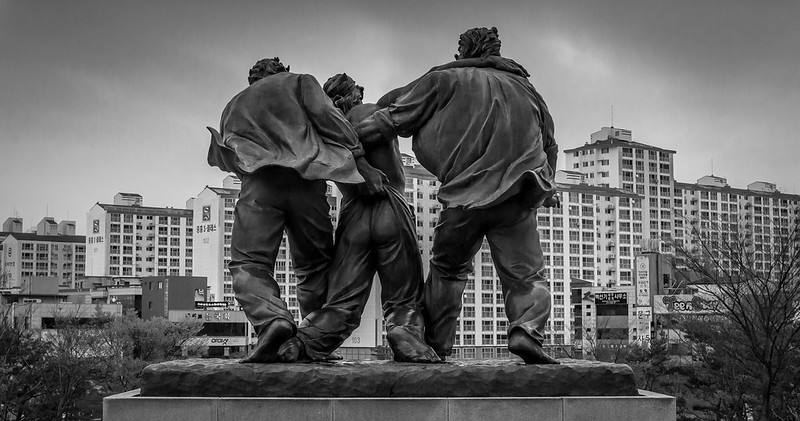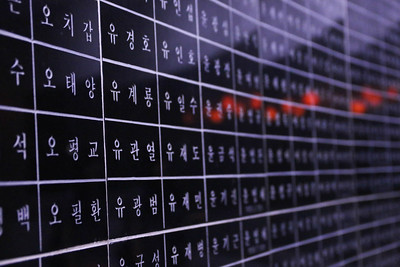- 한국어
- English
- 日本語
- 中文
- العربية
- Español
- Français
- Deutsch
- Pусский
- Tiếng Việt
- Indonesian
By Honorary Reporter Csenge Timar from Hungary
Photos = flickr
Reading "Human Acts" by Han Kang has profoundly changed my perspective, offering deep consolation to those lost in the fight for freedom and human rights. This historical fiction is a literary masterpiece in its depiction of the 1980 Gwangju uprising.
In May 1980, students in Gwangju hold protests against military dictator Chun Doo-hwan. In response, the government declares martial law and deploys troops to brutally supress the demonstrations.
"Human Acts" captures this period not only as a historical event but also as a human tragedy, focusing on the personal stories and suffering of those who lived through the uprising. Through this lens, Kang offers a powerful reminder of the cost of political repression and the enduring quest for justice.

The Uprising Memorial of Gwangju May 18 (Flickr account of Adrian Stuart Jarvis)
The protagonist, middle school student Dong-ho, volunteers to catalog the dead bodies in a temporary mortuary, hoping to help grieving families find their lost loved ones. Kang's raw and vivid writing, paired with a second-person perspective, immerses the reader deeply in the story. By calling the protagonist "you," she expresses Dong-ho's experiences viscerally, making the story even more heart-wrenching especially when Dong-ho's mother becomes the reader's mother, in a sense.
The deceased children in the story are given voices to express their thoughts and emotions. Learning about their premature deaths and their dreams, hopes and struggles cruelly taken away prompted deep reflection on my own nation's history. In Hungary, this narrative feels all too familiar. Student-led uprisings against dictatorial regimes, whether successful or not, often resulted in massacres, death and shattered hopes.
"Human Acts" is a reminder that such atrocities are not due to cultural differences, distance or opposing ideologies. Instead, circumstances allow such horrors to unfold.
Though this book is set in Gwangju, a city thousands of km away from me, its story resonates universally.

Gwangju Uprising Memorial (lilacandhoney's Flickr account)
Oct. 23 marks the anniversary of the 1956 Hungarian Revolution. The themes of "Human Acts" will undoubtedly surface in my thoughts as I remember the fallen souls not only of Hungary but also of Korea. Both stories of uprising, sacrifice and the devastating loss of young lives convey the fragility of freedom and the weight of history that connects all, regardless of distance or culture.
The book's most striking trait is how it transcends its historical moment, connecting readers to a broader human experience. Kang's narrative not only brings to light the pain and suffering of the Gwangju uprising but also the power of collective memory.
"Human Acts" is a compelling narrative whose vivid portrayals stay with the reader long after turning the final page.
msjeon22@korea.kr
*This article is written by a Korea.net Honorary Reporter. Our group of Honorary Reporters are from all around the world, and they share with Korea.net their love and passion for all things Korean.